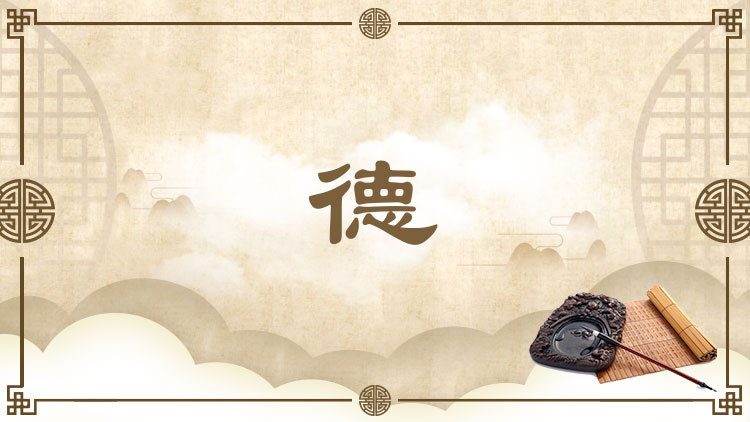德 De

“德”有两种不同含义:其一,指个人的良好品格或人们在社会共同生活中的良好品行。“德”原初的意义与行为有关,主要指外在的道德行为,后兼指与道德行为相应的内在的情感、意识。“德”被认为是外在的道德行为与内在的道德情感、道德意识的结合。其二,指事物从“道”所得的特殊规律或特性,是幽隐无形的“道”的具体显现,也是事物产生和存在的内在依据。
The term has two different meanings. One is an individual's fine moral character, or his proper conduct in society. At first de (德) was only related to an individual's behavior, referring to his external moral conduct. Later, it also referred to something that combined external behavior with internal emotions and moral consciousness. The other meaning of de refers to the special laws and features obtained from dao, or the physical manifestation of the hidden and formless dao, as well as the internal basis for the origination and existence of all things.
引例 Citations:
◎天生烝民,有物有则,民之秉彝,好是懿德。(《诗经·大雅·烝民》)
上天降生众民,有事物就有法则,民众遵守普遍的法则,崇好这样的美德。
Heaven gives birth to people, provides them with goods and materials, and subjects them to rules. People obey universal rules and value virtues. (The Book of Songs)
◎道生之,德畜之。(《老子·五十一章》)
道生成万物,德蓄养万物。
Dao creates all things under heaven while de nurtures them. (Laozi)
推荐:教育部 国家语委
供稿:北京外国语大学 外语教学与研究出版社
责任编辑:钱耐安





